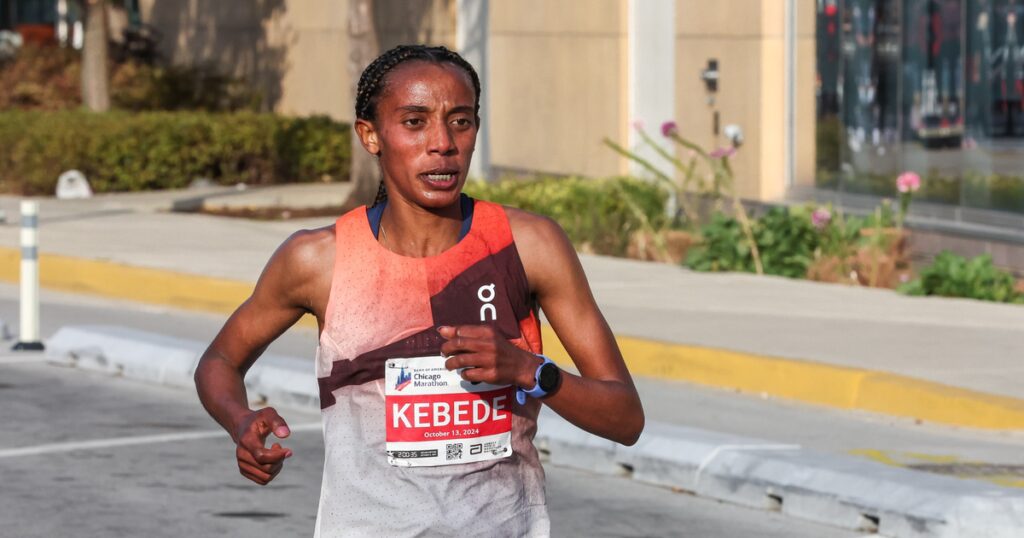The Tokyo Marathon: Insights from the 2025 Edition
The recent Tokyo Marathon kicked off on March 2, 2025, marking the event’s 18th edition and serving as the inaugural World Marathon Major for the year. As the event unfolded in Japan, it provided American viewers with captivating moments, despite the race occurring on what was technically a Saturday night back in the U.S.
Highlighting Athlete Performances
While significant attention was drawn to celebrity participants like Harry Styles, the marathon featured astonishing performances from elite athletes. Sutume Kebede successfully defended her title with a remarkable time of 2:16:31, making history as Tokyo’s first back-to-back champion. In the men’s category, Tadese Takele emerged victorious, clinching his first major marathon win in 2:03:23—just one second off his personal best set during his debut in 2023.
Shifting Paradigms in Marathon Running
The marathon scene underwent significant transformation in 2024, influenced by tragic events such as the untimely passing of Kelvin Kiptum and the evolving performances of legendary runners like Eliud Kipchoge. As the 2025 marathon season kicks off, the Tokyo Marathon results have ignited discussions about the current landscape of the sport.
The Changing Standard for Female Marathoners
Ruth Chepngetich has undoubtedly raised the bar for female marathon runners. Just three years ago, Kebede’s winning time would have been a historical milestone, ranking among the top three fastest marathon performances. However, as of now, it barely registers within the top 20. Kebede’s halfway split of 66:20, while impressive, underscores how much the standards have evolved, especially when contrasted with Chepngetich’s record-setting pace.
Exploring Athlete Consistency and Human Performance
In a stark contrast to Kebede’s achievement, Benson Kipruto, a three-time World Marathon Major champion, faced a rare setback, finishing seventh in 2:05:46. His last off-podium finish dates back to 2020, indicating a potential shift in the competitive landscape as other elite runners emerge. Kipruto’s results suggest that the race for supremacy in the marathon is far from resolved.
The Transition from Track to Roads
Tadese Takele has shown that transitioning from track to road racing can yield fruitful results. His victory in Tokyo signifies a successful adaptation to marathon running, showcasing that newcomers can thrive in this demanding discipline. The Ugandan runner’s ability to post consistent times in his early career reflects a promising future for him in the marathon circuit.
The Road Ahead for Joshua Cheptegei
Joshua Cheptegei, a decorated athlete in track events, is still navigating his marathon journey. Despite a competitive showing in Tokyo with a time of 2:05:59, improved from his previous attempt, he has yet to fully realize the potential that many anticipate. Cheptegei’s experiences so far signal that, while his track accolades are significant, translating that talent into marathon success remains a work in progress.
Strategies and the Art of Marathon Running
Despite varying philosophies on race strategy, not all runners subscribe to the conventional wisdom of pacing themselves. The Tokyo Marathon featured instances where Japanese runners aimed for aggressive starts, resulting in mixed outcomes. Notably, Aoyama Gakuin University’s Aoi Ota faced challenges after a strong beginning, while others like Tsubasa Ichiyama showcased the effectiveness of pacing, finishing with a new personal best. This variety in strategy emphasizes the unpredictability and excitement inherent in marathon racing.
As the marathon calendar for 2025 unfolds, the Tokyo Marathon has provided valuable insights into the sport, highlighting emerging talents, shifting standards, and the evolving dynamics among elite runners. For more updates and analyses on marathon competitions, consider subscribing to leading sports news platforms.
